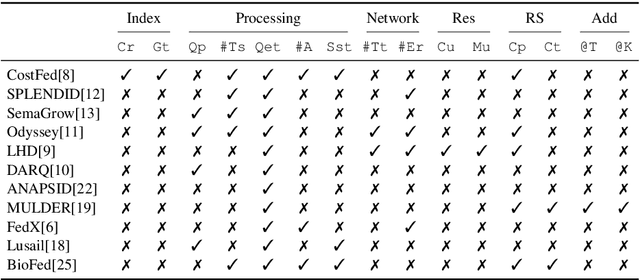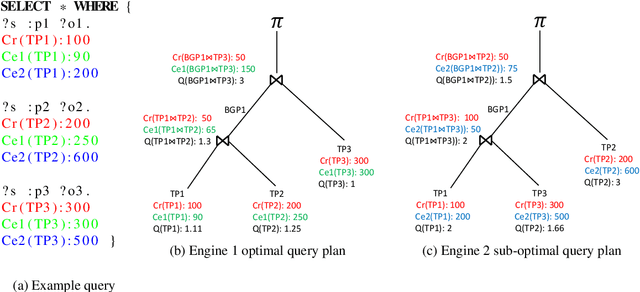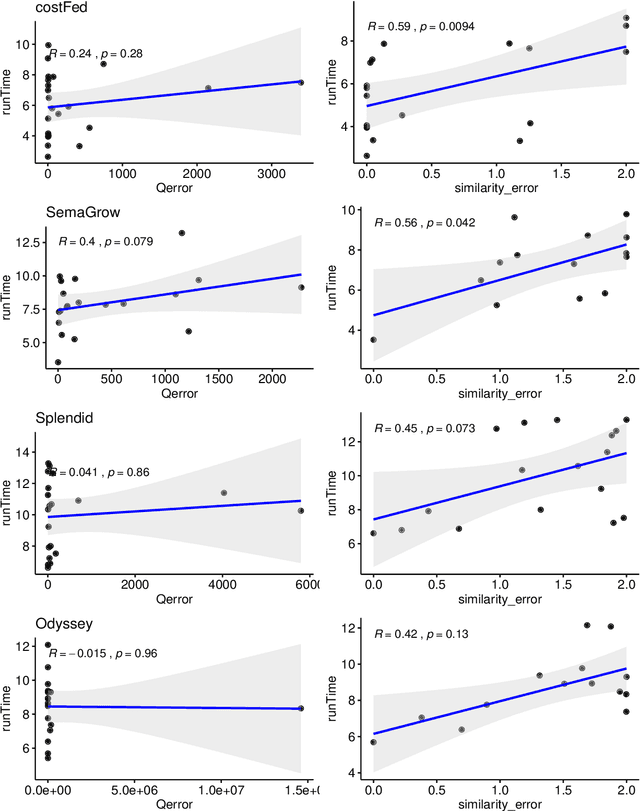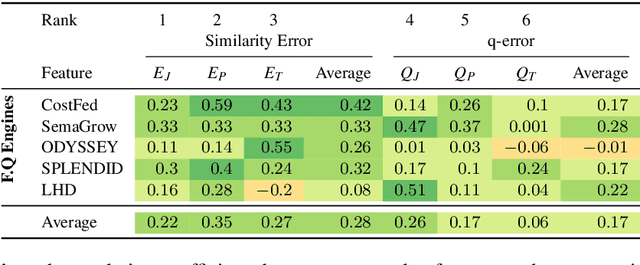Umair Qudus
HybridFC: A Hybrid Fact-Checking Approach for Knowledge Graphs
Sep 10, 2024Abstract:We consider fact-checking approaches that aim to predict the veracity of assertions in knowledge graphs. Five main categories of fact-checking approaches for knowledge graphs have been proposed in the recent literature, of which each is subject to partially overlapping limitations. In particular, current text-based approaches are limited by manual feature engineering. Path-based and rule-based approaches are limited by their exclusive use of knowledge graphs as background knowledge, and embedding-based approaches suffer from low accuracy scores on current fact-checking tasks. We propose a hybrid approach -- dubbed HybridFC -- that exploits the diversity of existing categories of fact-checking approaches within an ensemble learning setting to achieve a significantly better prediction performance. In particular, our approach outperforms the state of the art by 0.14 to 0.27 in terms of Area Under the Receiver Operating Characteristic curve on the FactBench dataset. Our code is open-source and can be found at https://github.com/dice-group/HybridFC.
An Empirical Evaluation of Cost-based Federated SPARQL Query Processing Engines
Apr 02, 2021



Abstract:Finding a good query plan is key to the optimization of query runtime. This holds in particular for cost-based federation engines, which make use of cardinality estimations to achieve this goal. A number of studies compare SPARQL federation engines across different performance metrics, including query runtime, result set completeness and correctness, number of sources selected and number of requests sent. Albeit informative, these metrics are generic and unable to quantify and evaluate the accuracy of the cardinality estimators of cost-based federation engines. To thoroughly evaluate cost-based federation engines, the effect of estimated cardinality errors on the overall query runtime performance must be measured. In this paper, we address this challenge by presenting novel evaluation metrics targeted at a fine-grained benchmarking of cost-based federated SPARQL query engines. We evaluate five cost-based federated SPARQL query engines using existing as well as novel evaluation metrics by using LargeRDFBench queries. Our results provide a detailed analysis of the experimental outcomes that reveal novel insights, useful for the development of future cost-based federated SPARQL query processing engines.
* 24 pages, Semantic Web, 2020, #article
 Add to Chrome
Add to Chrome Add to Firefox
Add to Firefox Add to Edge
Add to Edge